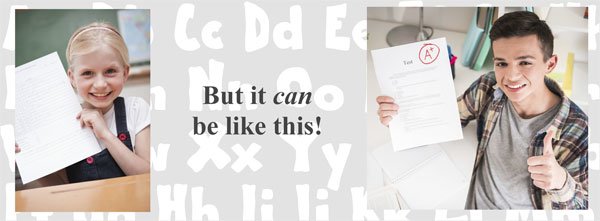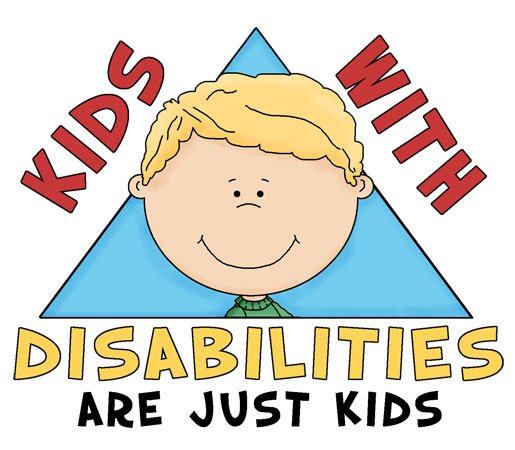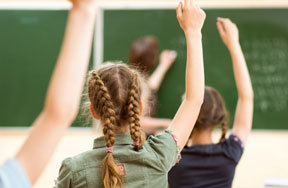Everyone learns differently and some kids and teens have learning disabilities. All learning impairments have one thing in common: deviations in processing in one or more location of the brain. If you are trying your best to learn certain skills, but can’t keep up with your peers it is best to figure out why because you may have a learning disability.
What is a Learning Disability?
A learning disability is a phrase which describes a range of learning problems. Problems that have to do with how the brain absorbs, stores and sends out information. Around 15% of kids and teens have learning disabilities. If you have a learning disability, you may struggle with one or more of the following: reading, writing, listening, speaking, reasoning and mathematical skills. Out of all of the potential learning disabilities, the most common is a reading disorder.
 Learning Disabilities can be overcome.
Learning Disabilities can be overcome.
What Causes Learning Disabilities?
There can be many factors, which cause a learning disability, though many of the causes are unknown. In a lot of cases kids or teens with learning disabilities have a parent or relative with the same or similar learning issues. There are other risks which include low birth weight, and prematurity or an injury or illness during childhood like a head injury, Meningitis or lead poisoning.
How Do You Know If You Have a Learning Disability?
For preschool children, it can be a delay in language development. By the age of two and a half children should be able to talk in phrases or short sentences. It can also be apparent in speech trouble. By the age of three, children should speak well enough that most of what they say is understood by adults. There is also the issue of learning colors, shapes, letters and numbers or the trouble with rhyming words. Trouble with coordination is also a problem. By the age of 5, children should be able to button their own clothes, use scissors to cut shapes out of paper and hop. Children should be able to copy shapes like: circle, square and triangle. Short attention spans can also be an issue. Between the ages of three-five, kids should be able to listen still to a short story and as they age, they should be able to pay attention for an even longer time.
 With the right guidance you can get to where you want to be.
With the right guidance you can get to where you want to be.
Kids and Teens In School Might Find It Hard To:
- Follow directions
- Stay organized
- Comprehend verbal directions
- Learn facts and remember information
- Spell, read and sound out words
- May have poor handwriting
- Have trouble calculating math or solve a word problem
- Focus on schoolwork and complete it
- Explain things clearly with speech or writing
What Are the Most Common Learning Disabilities?
Reading disorders are the most common learning disability. Dyslexia is a specific disability in reading. Those who suffer from it have a hard time reading well and fluently. They can also have issues with reading comprehension, spelling and writing.
 If you are suffering from a learning disability there is help.
If you are suffering from a learning disability there is help.
Reading Disorders Will Challenge One’s Ability to:
- Remember the names of letters and the specific sound each makes
- Understanding that words are made up of sounds and that letters stand for those sounds
- Sounding out words right and at the right speed
- Spelling words correctly
- Have strong reading comprehension
 It's okay to feel like you don't get it.
It's okay to feel like you don't get it.
Writing Disorders Will Challenge One’s Ability to:
- Know how to use a pen or pencil
- Being able to know how letters are formed
- Copying shapes, drawing lines or knowing how to space things out accurately
- Organizing thoughts, ideas and feelings on paper
- Spell and do proper punctuation
Math Disorders Will Challenge One’s Ability to:
- Recognize and draw shapes
- Learn mathematic concepts like number values, quantity and order
- Understand time, money and measuring
- Perform fractions, percentages, geometry and algebra
Kids can also experience trouble with nonverbal learning skills, speech and language delays, and ADHD, which affects one's ability to focus, remember and complete assignments.
Is There a Cure for Learning Disabilities?
Unfortunately, there is no one soul cure for learning disabilities. However, there are many things available to help kids and teens manage their learning disability and live fruitful lives. Talk to your doctor, get in touch with resources. For example, you can meet with an educational consultant or educational specialist who can properly assess you and who will advocate your needs to your school. Then things can be modified for you, or you can attend a special school that is trained to work with learning disabilities. You might also want to see a pediatrician who specializes in neurodevelopment disabilities, developmental and behavioral pediatrics, or child neurology.
 Kids with disabilities are just kids.
Kids with disabilities are just kids.
Kids and teens can meet their education goals by finding and developing new ways of learning. Specific educational services may also be available in your area. This may include specialized instructions, non-timed tests or other changes made in the classroom, which are targeted towards your particular learning style. Teachers, parents and sometimes doctors can meet to make a written plan that outlines your needs. This type of plan is known as an Individualized Education Program (IEP). Once an IEP is set in stone, it should be looked at frequently to ensure that your needs are being met.
Always remember to focus on your strength, no matter what the outcome is, you have special talents as well as weaknesses. Find your strengths and let them guide you. Praise yourself for progress and success. Everyone learns differently, but the important thing is that you find a way to learn that works for you. You can learn and excel if you get the proper help and feel supported. The sooner you know what’s going on, the better.
 Learn the best way for you!
Learn the best way for you!
Tell Everyone What You Think
Do you struggle to keep up with your peers academically? If yes, how so? Comment below.

































